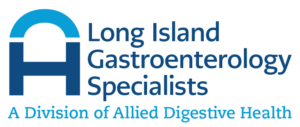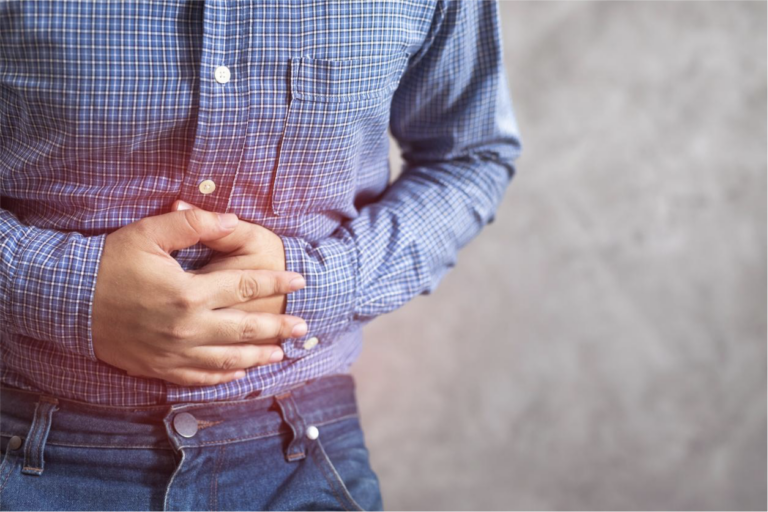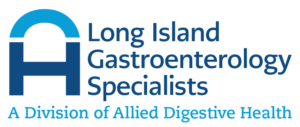Most people today follow a variety of diets to improve their health. The digestive system is the most directly affected body system, both positively and negatively. So, can certain diets cause or worsen IBS symptoms?
Before we get into the various diet food elements and their impact on IBS, note that at Allied Digestive Health, we provide all gastrointestinal-related care, consultation, treatment, and operations. We are a large network of health care professionals who cater to patients and offer medical advice to anyone interested in learning more about gastroenterology.
Diets and Eating Habits Linked to IBS
Do you know that IBS manifests differently in different patients?
This means that the causes and things that trigger IBS vary from person to person. The main symptoms directly linked to diet are constipation, abdominal pain, cramping, and diarrhea. But other factors may cause and worsen IBS, like stress, use of certain drugs, and other daily habits we will briefly cover in this piece.
This means that in one person, a certain trigger may cause little to no effects, but in another, it may make the symptoms worse.
Here are the diet and eating habits that are linked to causing and worsening IBS:
Diets High in Insoluble Fiber
Foods usually have two types of fiber: soluble and insoluble. And generally, fiber is a great component of food since it adds bulk and facilitates the easy movement of food through the digestive tract.
Both kinds are healthy and generally okay for most people but some people can have symptoms with different types of fiber. If someone has digestive symptoms from insoluble fibers such as the skin of most fruits, whole grains, and vegetables, they can opt for foods with soluble fibers like beans, oats, and fruits.
Diets With Gluten
Celiac disease is a chronic digestive and immune disorder that damages the small intestine. This disease is triggered by eating foods containing gluten. It is important to rule out a diagnosis of celiac disease in patients with IBS. Some people without celiac disease that have IBS are gluten intolerant, and can have improvement in their symptoms with a gluten free diet.
According to a 2015 study, a gluten-free diet can relieve IBS symptoms in about half of the people investigated.
Some doctors advise IBS sufferers to eliminate gluten to see if their condition improves. If gluten aggravates your symptoms, you might wish to try a gluten-free diet.
Dairy Products
Dairy can be problematic for people with IBS for a variety of reasons.
For starters, many dairy products, including ice cream, are abundant in fat, which can cause diarrhea. Changing to non-fat or low-fat dairy products may help you feel better.
Additionally, most people with IBS say milk makes their lactose intolerance symptoms worse.
Consider moving to dairy substitutes such as soy-based cheese and plant milk if cow milk or dairy is causing you intestinal discomfort. If you want to fully avoid dairy, rely on calcium-rich foods such as greens, sardines, beans, seeds, and nuts.
Processed Foods
Added sugars, salt, and other preservative compounds are common in processed foods. Anyone who consumes too much of these components may have digestive health issues. They frequently contain chemicals or stabilizers that might cause IBS flare-ups.
According to a 2019 review, eating four portions of ultra-processed meals per day was connected to an increased risk of IBS, obesity, cancer, and high blood pressure.
Preparing home-cooked meals or purchasing fresh produce is a healthier option than consuming processed foods when possible.
Sugar-free Sweeteners
Sugar-free sweeteners like artificial sweeteners, alcohol sugars, and natural non-calorie sugars such as stevia may trigger IBS symptoms like abdominal pain.
Eating Habits That Cause Symptoms of IBS
Besides the diet foods mentioned above, here are the eating habits that may make IBS worse or cause it:
- Eating food too fast.
- Eating foods at different temperatures.
- Chewing gum.
- Eating while working or driving.
Can Supplements Help?
There is no cure for IBS, but supplements can help you control, treat, and ease the symptoms, in addition to helping you fill any dietary gaps you may have.
On that note, the dietary supplements that you need to go for should be low or non-dairy, gluten-free, and ones without artificial sugars if you have IBS or suffer from some of its symptoms.
Lifestyle Improvements
You can continually make certain changes in your life to limit IBS flare-ups. Here are the most helpful ones:
Use a Low-FODMAP Diet
FODMAPS are fermentable oligo-di, monosaccharides, and polyols. These foods are short-chain carbohydrates that ferment in the colon. FODMAP-rich foods include beans, artichokes, wheat, dairy, and cauliflower.
When colon bacteria break down FODMAPs, bloating, abdominal pain, gas, and gastric swelling might result. FODMAPs can aggravate IBS.
Low-FODMAP diets minimize IBS symptoms by helping many individuals control stomach pain and discomfort.
Firstly, avoid FODMAP-rich meals, and secondly, if you must have them, cautiously reintroduce them to test tolerance. Alternatively, eat foods like eggs, meats, fish, seeds, and lactose-free dairy low in FODMAPS.
Get Active
Any activity that gets your body moving counts as being active, whether it’s exercise or stretching. Start practicing yoga, resistance training, cardio, or pilates, for example. These movements aid digestion and alleviate symptoms such as bloating and gas.
The benefit of getting active is that even minor exercises like walking or using the stairs can assist.
Limit Caffeine, Alcohol, and Tobacco
Besides being stress-inducers to some degree, this trio is bad for IBS symptoms like constipation, diarrhea, and abdominal discomfort.
These three elements affect the digestive tract differently. Tobacco smoke that reaches the intestines irritates the walls and affects the absorbability of food in the gut. And it is the same with alcohol that lowers the absorbability of FODMAP foods. Caffeine is notorious for inducing IBS diarrhea.
And so, shifting some lifestyle choices by eliminating these three will greatly help you curb IBS symptoms.
Better Food Choices
Better eating choices include avoiding the trigger foods mentioned above, such as dairy, processed foods, sugar-free sweeteners, and gluten-containing meals.
Choose organic foods such as green leafy vegetables, fruits, lactose-free milk, gluten-free meals, and low-FODMAP meals.
But that’s not all; you’ll also need to make a total lifestyle change. Get moving, avoid specific foods, and supplement with medically approved supplements.
This way, you can be sure that your IBS symptoms will go away, and you will be able to live a healthy and comfortable life.
We can assist you in making these informed changes at ADH, regardless of the severity of your IBS. Our experts will provide you with only the most up-to-date medical advice on living a healthy lifestyle with or without IBS. To understand more about gastrointestinal health, search our locations, contact us now for a consultation, or read our blog.



